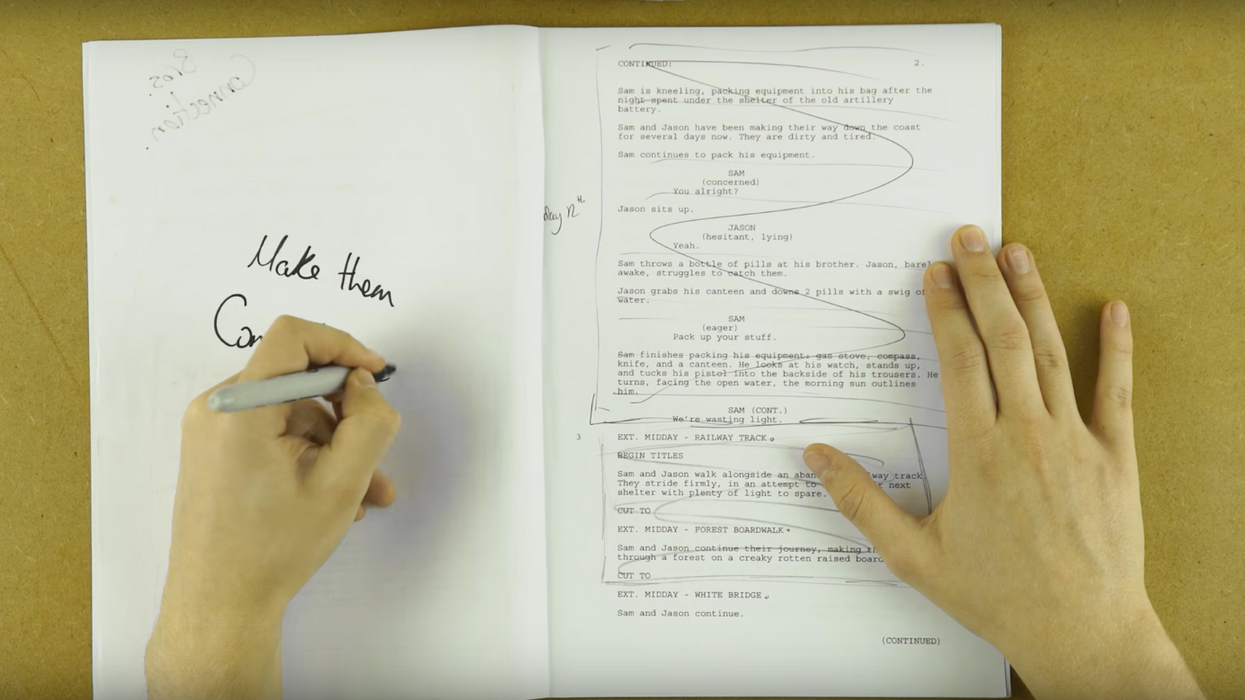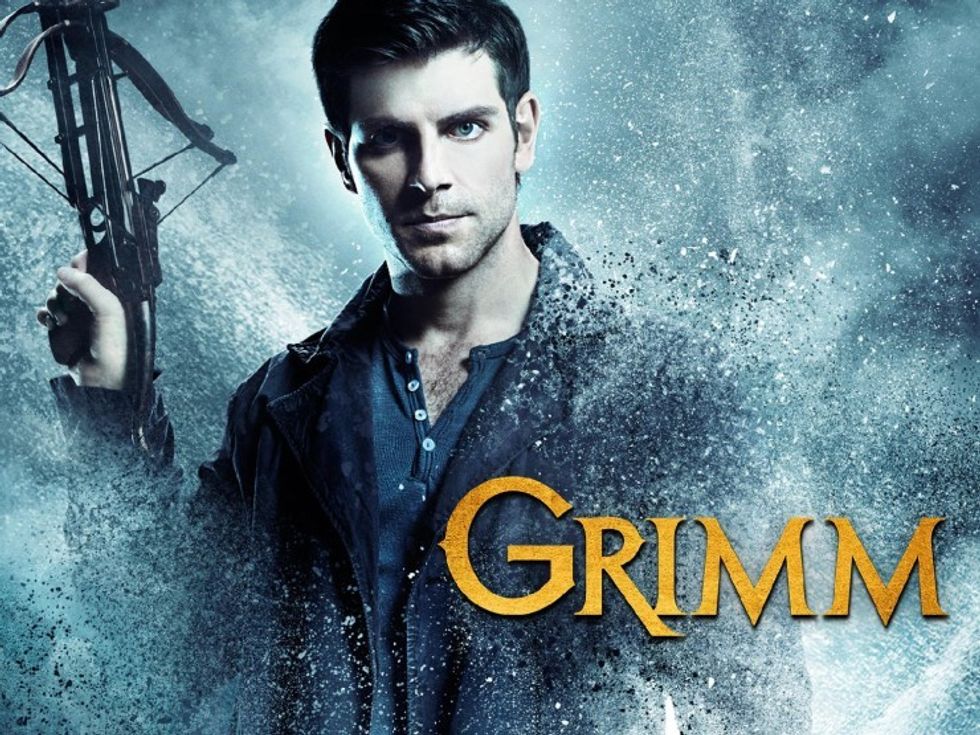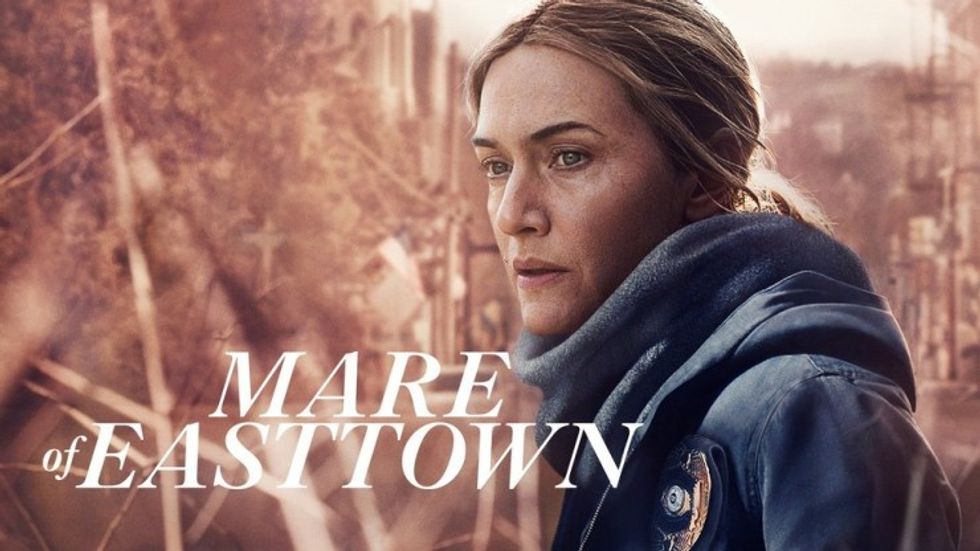Why Script Coordinator Is the Most Important Job You've Never Heard Of
Think you could be a script coordinator in the episodic world? Well, first you should know what the job is, and how it changes dramatically by production.

Is it like a script supervisor? No, not at all. Depending on how familiar you are with network and cable television shows, you may not know what a script coordinator does exactly.
That’s changing.
Script coordinators and writer's assistants have both been in the news this year, ever since TV writers shed light on their huge importance to the writing process during IATSE contract negotiations. (With TV writers overwhelmingly supporting a higher living wage for both.)
So what does a script coordinator do?
SoCreate sat down with script coordinator Marc Gaffen (Lost, Grimm) to have him break it down.
Here are our main takeaways. As Gaffen explains, a script coordinator’s job differs by show, and there are three main types of productions that influence how you do your job.
Script Coordinator Gig 1: Single-Writer Shows
For this type of show, Gaffen cites Grimm, the series following Portland detective Nick Burkhardt as he defends his city from magical creatures. The show was created byStephen Carpenter and Jim Kouf & David Greenwalt, and each episode is largely penned by one writer.
How does it work in a single-writer scenario?
As Gaffen says, it usually begins with the writer pitching an idea to showrunners. The showrunners approve it and work on it. After that point, the writer gets up to two weeks (often less) to write the script.
At that point, the writer will send the script to the script coordinator, who will edit it and follow it into production.
On a show like Grimm, which contains a lot of elaborate mythology, the script supervisor's job will also include keeping detailed spreadsheets to keep track of types of monsters and foreign languages created throughout the show.
Gaffen also cited The Event, which like Lost, involved a lot of complicated timelines and flashbacks. Gaffen would need to be on the ready with all of this fictional information. Could this character have been here on this date in this year for a flashback? No, they were in Russia, that wouldn’t line up!
Script Coordinator Gig 2: Multiple Writers in the Writers' Room
For this type of production, Gaffen cites the show New Amsterdam about charming Dr. Max Goodwin as he heads America's oldest public hospital. The show has many writers, including Erika Green Swafford, David Foster, Aaron Ginsburg, Cami Delavigne, Laura Valdivia, David Schulner, Josh Carlebach, Jiréh Breon Holder, Shaun Cassidy, Graham Norris, and Cami Delavigne.
In this scenario, a group of writers form a writers' room and collaborate on every script. They send scenes to the script supervisor, who compiles the scenes into one cohesive script. (That sounds like a lot of editorial power!)
According to Gaffen, on a show like New Amsterdam, there are not a ton of tricky things to keep track of as in productions like Grimm, Lost, or The Event. So there’s less of the Excel sheeting stuff.
Script Coordinator Gig 3: Cable Shows That Shoot All at Once
Gaffen mentioned that it’s very common now for shows to have 8, 10, or 12 episodes. And as a script coordinator on several HBO shows, including Mare of Easttown, which is about small-town Pennsylvania detective Mare Sheehan (Kate Winslet), the process is quite different than on a network show.
Namely, the showrunners come up with and write the scripts for the season all at the same time.
This way, they can also shoot all the episodes all at once. This allows for cross-boarding, so shows can use the same location for different episodes. In other words, it saves a ton of money!
In this scenario, the script coordinator is the showrunner’s right-hand person. Unlike the writer’s assistant, who leaves during the production, the script coordinator is there the whole way during shooting and facilitates when changes invariably need to happen due to production needs, locations, and even COVID.
We think that gig sounds like a lot of fun. Imagine all the creative decisions that would come through you!
Thanks for the breakdown, Marc.
Source: SoCreate














